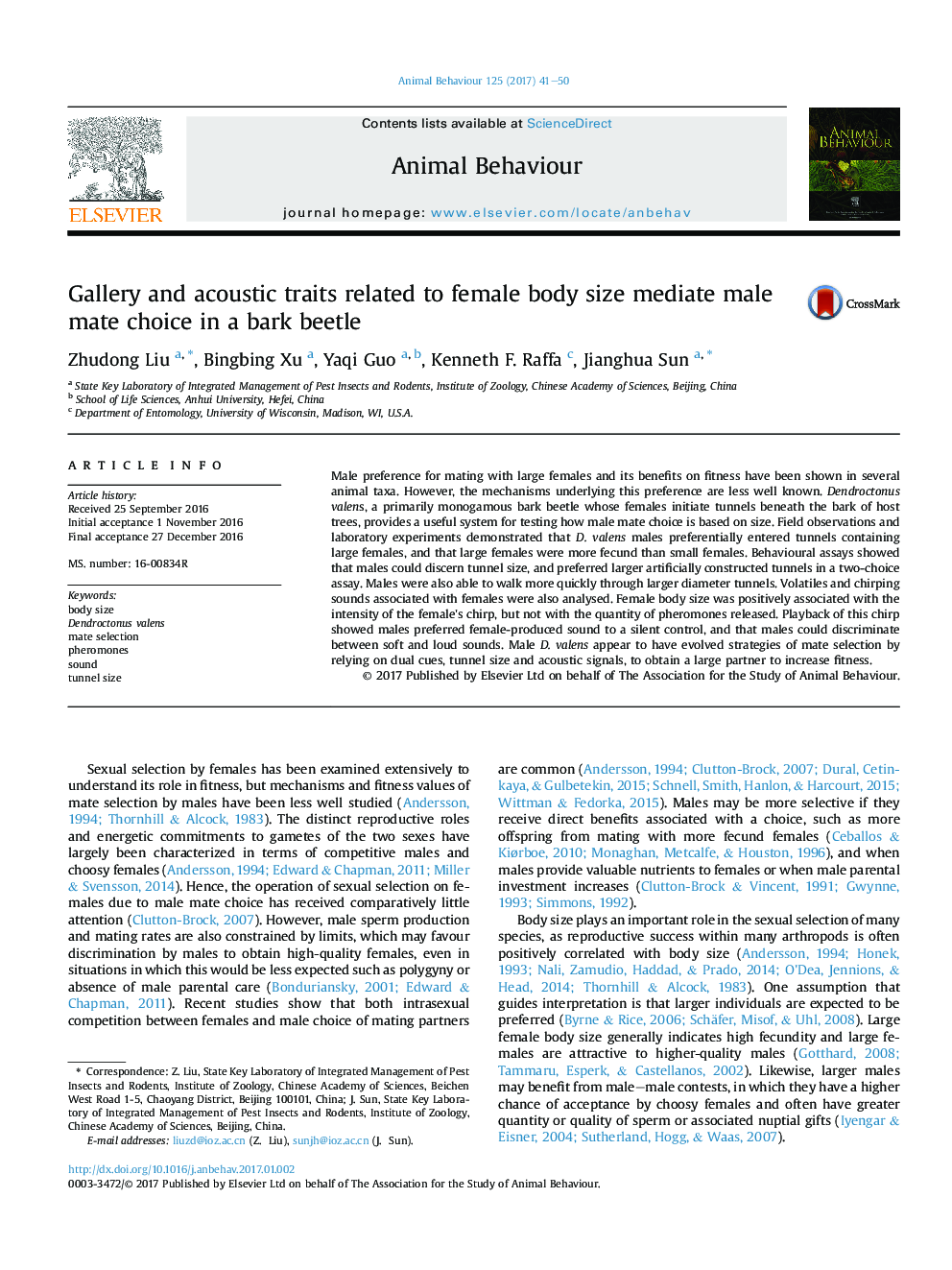| Article ID | Journal | Published Year | Pages | File Type |
|---|---|---|---|---|
| 5538549 | Animal Behaviour | 2017 | 10 Pages |
Abstract
Male preference for mating with large females and its benefits on fitness have been shown in several animal taxa. However, the mechanisms underlying this preference are less well known. Dendroctonus valens, a primarily monogamous bark beetle whose females initiate tunnels beneath the bark of host trees, provides a useful system for testing how male mate choice is based on size. Field observations and laboratory experiments demonstrated that D. valens males preferentially entered tunnels containing large females, and that large females were more fecund than small females. Behavioural assays showed that males could discern tunnel size, and preferred larger artificially constructed tunnels in a two-choice assay. Males were also able to walk more quickly through larger diameter tunnels. Volatiles and chirping sounds associated with females were also analysed. Female body size was positively associated with the intensity of the female's chirp, but not with the quantity of pheromones released. Playback of this chirp showed males preferred female-produced sound to a silent control, and that males could discriminate between soft and loud sounds. Male D. valens appear to have evolved strategies of mate selection by relying on dual cues, tunnel size and acoustic signals, to obtain a large partner to increase fitness.
Related Topics
Life Sciences
Agricultural and Biological Sciences
Animal Science and Zoology
Authors
Zhudong Liu, Bingbing Xu, Yaqi Guo, Kenneth F. Raffa, Jianghua Sun,
